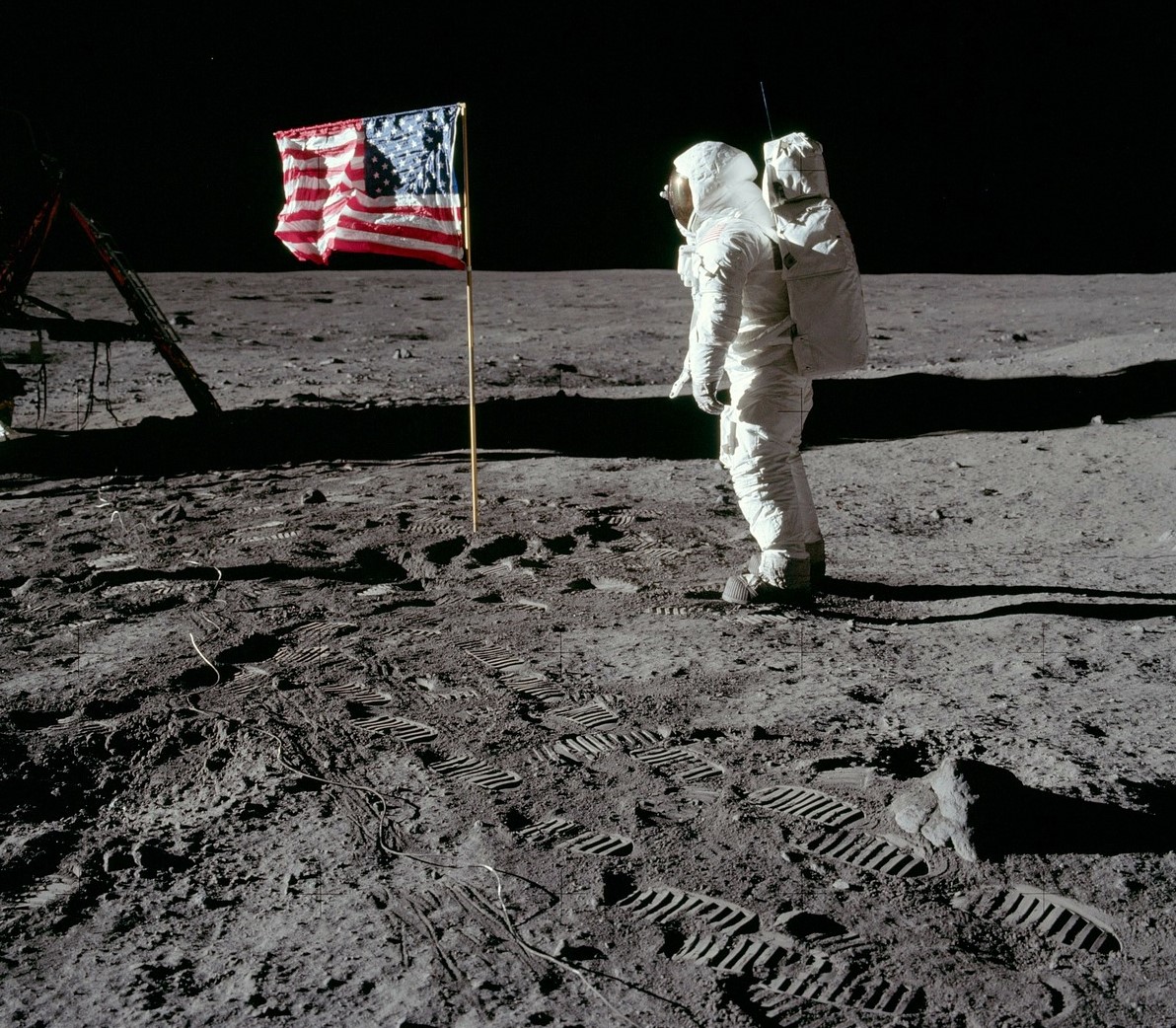
That summer when I was 16, my family gathered to watch humans land on the moon. My father, an engineer, was amazed and appreciative of all the technology that had transported Armstrong and Aldrin there. My mother, the artist, marveled at the aesthetic opportunities. My younger brother, age 12 and an astronomy geek, knew exactly how far the spacecraft had traveled. But it was my grandmother, sitting near the small television set, that gives me the strongest memory. There she looked, watching the puffs of moon dust under the astronauts’ feet, and kept saying in her idiosyncratic combination of Yiddish and English, “I can’t believe they are walking on the moon.”
She kept saying in her combination of Yiddish and English, "I can't believe they are walking on the moon."
In 1896, grandma Rose was born in a house with a dirt floor, in the rural Austro-Hungarian Empire, across the river from Russia. As a small child, her feet trod earth dust as she helped with farm chores and took care of younger siblings. Horses clopped along the dusty roads, pulling their wagons.
On Friday evenings in the summer, she kicked up the dust outdoors as she danced around the Sabbath candles, their warm lights enhancing the cool, bright light of the moon. At age six, she spent a year helping her aunt as a maid in a nearby city, but returned to the house with a dirt floor when her mother died the next year, sewing curtains for money and trying to keep her brothers and sisters fed. By age 12, in New York, she traded earth dust for coal dust and the stuffiness of a sweat shop.
So then, in 1969 in a suburban home with wall-to-wall carpeting and modern conveniences, she sat watching, her intellect understanding what she was seeing, but her imagination not quite believing it. During her life, she had experienced the arc of technology that had brought us from dirt floors to walking on the moon. The next year, grandma Rose died, young by today’s standards, having lived a hard but fascinating life during times of change. I’m so grateful she got to see men walk on the moon.
I have recently retired from a marketing and technical writing and editing career and am thoroughly enjoying writing for myself and others.



Marian, this is lovely. My grandmother had a similar background to yours, and I imagine she would have had a similar reaction to the moon landing. She must have watched it with my parents in New Jersey, but I wasn’t there to share it with her. Thanks for sharing this image.
Thanks, Suzy. It was amazing what that generation saw during their lifetimes, and the incredible contrasts.
Marian, I love this story. My paternal grandmother had a very similar life. I knew my father’s reaction to the moon landing was one of scientific amazement, but I never thought about how this fear must have impacted his mother. Thanks for this insight.
Thanks, Laurie. Many Retrospect-ers have indicated a similar experience with grandparents. It is thought provoking.
I love the juxtaposition of the generations, Marian. I am very much into family history (preview of coming attractions on this site) and the “takes” and memories of our elders (which we seem to be ourselves these day) are gold. Your story made me think of my own grandfather, my father’s father. He died almost exactly one year after Apollo 11, and I simply don’t recall what, if anything, he thought about that event.
Like you, Tom, I am beginning to delve into family history. Trying to get my mom (who is 91) to recount stories is challenging, but I am getting more bits and pieces, and they are moving and enlightening.
Marian, thank you for sharing the unique perspective of someone who lived long enough to go from living in a house with a dirt floor to witness men kick up moon dust with their feet. So different than our personal points of view and yes, your grandmother witnessed remarkable progress in her lifetime. Thank you for sharing her story with us.
You’re welcome, Betsy. This story brings some of us back to times when we were together as a family for this big event.